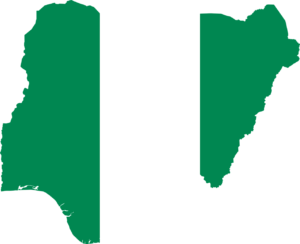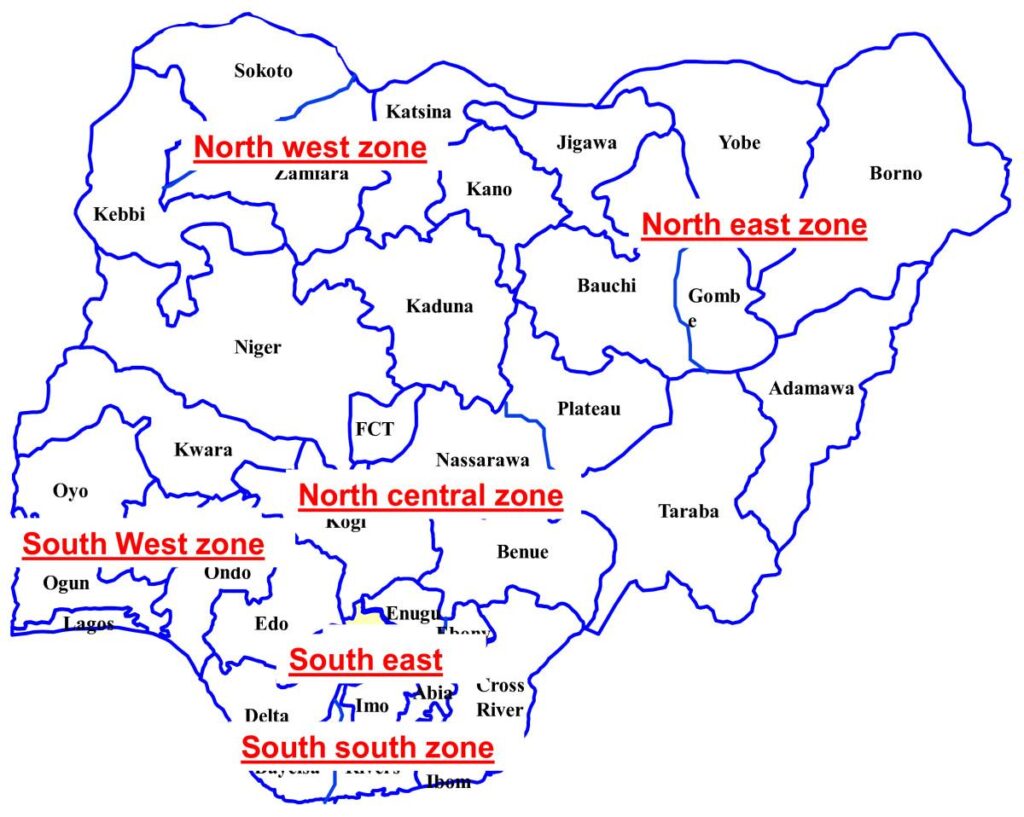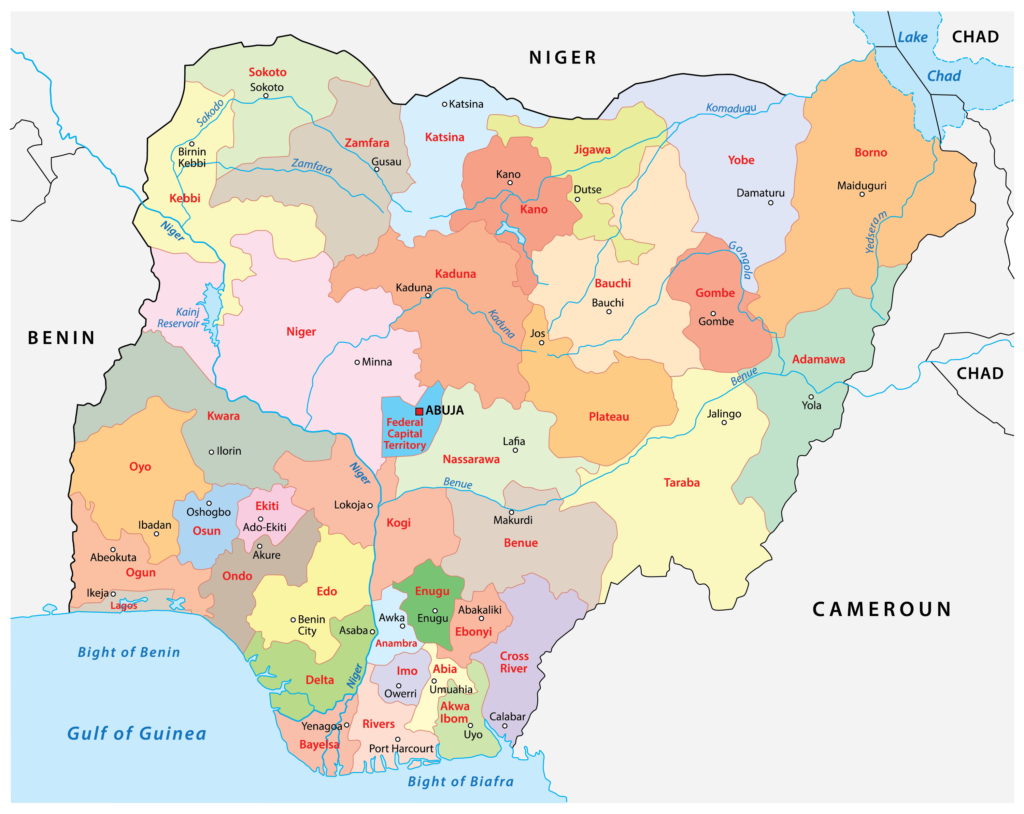
In this blog post, we will delve into the topic of state and capital in Nigeria. Whether you’re a curious traveler or a student learning about the country, understanding the states and capitals of Nigeria is essential. Join us as we take a closer look at each state and its corresponding capital, and gain a deeper understanding of Nigeria’s geographical and administrative structure. Let’s dive in and uncover the fascinating world of states and capitals in Nigeria.
1. Overview of Nigeria
Nigeria, located in West Africa, is often referred to as the “Giant of Africa” due to its large population, vibrant culture, and significant economic influence on the continent. Here’s a closer look at Nigeria’s history, geography, culture, and economy:
i. Brief History and Background:
- Nigeria has a rich and diverse history that dates back thousands of years, with ancient civilizations such as the Nok, Ife, and Benin kingdoms flourishing in the region.
- The modern state of Nigeria emerged through a complex process of colonization by European powers, primarily the British, who established control over various territories in the 19th century.
- Nigeria gained independence from British colonial rule on October 1, 1960, and has since experienced periods of political instability, military rule, and democratic governance.
ii. Geographical Features:
- Nigeria’s geography is incredibly diverse, encompassing coastal plains, savannas, rainforests, and plateaus.
- The Niger River, one of Africa’s major rivers, flows through Nigeria, dividing the country into eastern and western regions.
- Nigeria is also home to natural landmarks such as the Jos Plateau, the Niger Delta, and the Cameroon Highlands in the east.
iii. Cultural Diversity:
- Nigeria is renowned for its cultural diversity, with over 250 ethnic groups, each with its own language, traditions, and customs.
- The three largest ethnic groups in Nigeria are the Hausa-Fulani in the north, the Yoruba in the southwest, and the Igbo in the southeast.
- Nigerian culture is rich and vibrant, with music, dance, literature, art, and festivals playing a significant role in daily life.
iv. Economy:
- Nigeria has the largest economy in Africa, fueled by its abundant natural resources, including oil, natural gas, coal, and minerals.
- The oil industry is a major contributor to Nigeria’s economy, accounting for a significant portion of government revenue and export earnings.
- Despite its economic potential, Nigeria faces challenges such as income inequality, corruption, infrastructure deficiencies, and unemployment.
v. Political Landscape:
- Nigeria operates as a federal republic with a presidential system of government, where power is divided between the federal government and 36 states, along with the Federal Capital Territory (Abuja).
- The country has experienced periods of military rule interspersed with civilian administrations since gaining independence, with regular elections held to choose political leaders at the federal and state levels.
vi. Challenges and Opportunities:
- Nigeria faces numerous challenges, including security threats from insurgent groups such as Boko Haram, economic inequality, corruption, infrastructure deficits, and ethnic tensions.
- However, Nigeria also possesses immense potential, with a young and dynamic population, abundant natural resources, a growing consumer market, and opportunities for investment and development.

2. State and Capital in Nigeria
Here’s a comprehensive list of the 36 states in Nigeria along with their respective capitals:
- Abia State – Capital: Umuahia
- Adamawa State – Capital: Yola
- Akwa Ibom State – Capital: Uyo
- Anambra State – Capital: Awka
- Bauchi State – Capital: Bauchi
- Bayelsa State – Capital: Yenagoa
- Benue State – Capital: Makurdi
- Borno State – Capital: Maiduguri
- Cross River State – Capital: Calabar
- Delta State – Capital: Asaba
- Ebonyi State – Capital: Abakaliki
- Edo State – Capital: Benin City
- Ekiti State – Capital: Ado-Ekiti
- Enugu State – Capital: Enugu
- Gombe State – Capital: Gombe
- Imo State – Capital: Owerri
- Jigawa State – Capital: Dutse
- Kaduna State – Capital: Kaduna
- Kano State – Capital: Kano
- Katsina State – Capital: Katsina
- Kebbi State – Capital: Birnin Kebbi
- Kogi State – Capital: Lokoja
- Kwara State – Capital: Ilorin
- Lagos State – Capital: Lagos
- Nasarawa State – Capital: Lafia
- Niger State – Capital: Minna
- Ogun State – Capital: Abeokuta
- Ondo State – Capital: Akure
- Osun State – Capital: Osogbo
- Oyo State – Capital: Ibadan
- Plateau State – Capital: Jos
- Rivers State – Capital: Port Harcourt
- Sokoto State – Capital: Sokoto
- Taraba State – Capital: Jalingo
- Yobe State – Capital: Damaturu
- Zamfara State – Capital: Gusau
Additionally, the Federal Capital Territory (FCT) serves as the capital of Nigeria:
- Federal Capital Territory (FCT) – Capital: Abuja
3. Importance of State Capitals in Nigeria
The importance of state capitals in Nigeria cannot be overstated. State capitals serve as the administrative, political, and economic centers of their respective states. They play a crucial role in governance, development, and the overall functioning of the state. State capitals in Nigeria are significant for several reasons:
Administrative Functions: State capitals house the state government offices, including the governor’s office, state secretariat, and various administrative departments. These offices are responsible for implementing government policies, managing public resources, and providing essential services to the citizens.
Political Significance: State capitals serve as the political nerve centers of the states. They host the state legislative assemblies, where lawmakers gather to debate and pass laws that affect the state’s governance and development. State capitals also house the offices of political parties, facilitating political activities and campaigns.
Economic Activities: State capitals often attract significant economic activities, including businesses, industries, and commercial centers. They serve as hubs for trade, commerce, and investment, driving economic growth and development within the state. State capitals also provide employment opportunities and contribute to the overall prosperity of the state.
Infrastructure Development: State capitals usually receive more attention and investment in terms of infrastructure development. They are likely to have better transportation networks, educational institutions, healthcare facilities, and other essential infrastructure compared to other parts of the state. This helps in attracting businesses, professionals, and skilled workers to the capital, further boosting economic growth.
Cultural and Social Centers: State capitals are often cultural and social hubs, hosting festivals, events, and cultural activities that showcase the diversity and heritage of the state. They provide platforms for artistic expression, entertainment, and social interactions, fostering a sense of identity and community among the residents.

4. Tourist Attractions in The Capitals of All The States in Nigeria:
- Umuahia, Abia State:
- National War Museum, Umuahia
- Awhum Waterfall
- Yola, Adamawa State:
- Jimeta Central Market
- Lamido Palace
- Uyo, Akwa Ibom State:
- Ibom Plaza
- Ibom Tropicana Entertainment Centre
- Awka, Anambra State:
- Ogbunike Caves
- Eze Uzu Awka Palace
- Bauchi, Bauchi State:
- Yankari National Park
- Emir’s Palace
- Yenagoa, Bayelsa State:
- Ox-Bow Lake
- Bayelsa State Ecumenical Centre
- Makurdi, Benue State:
- Benue State University Zoo
- The Whispering Palms Resort
- Maiduguri, Borno State:
- Chad Basin National Park
- Shehu of Borno’s Palace
- Calabar, Cross River State:
- Tinapa Resort
- Calabar Museum
- Asaba, Delta State:
- River Niger Bridge
- Lander Brothers Anchorage
- Abakaliki, Ebonyi State:
- Ebonyi State University
- Amancho Caves
- Benin City, Edo State:
- Benin City National Museum
- Oba of Benin Palace
- Ado-Ekiti, Ekiti State:
- Ikogosi Warm Springs
- Arinta Waterfall
- Enugu, Enugu State:
- Nike Lake Resort
- Enugu Golf Club
- Gombe, Gombe State:
- Tangale Cultural Festival
- Emir of Gombe’s Palace
- Owerri, Imo State:
- Oguta Lake
- Mbari Cultural and Art Centre
- Dutse, Jigawa State:
- Kiyawa Games Reserve
- Ringim Ruins
- Kaduna, Kaduna State:
- Kaduna Museum
- Kaduna Polo Club
- Kano, Kano State:
- Kano City Walls
- Kano Emir’s Palace
- Katsina, Katsina State:
- Gobarau Minaret
- Emir’s Palace
- Birnin Kebbi, Kebbi State:
- Argungu Fishing Festival
- Kanta Museum
- Lokoja, Kogi State:
- Lord Lugard’s Residence
- Confluence Beach Resort
- Ilorin, Kwara State:
- Esie Museum
- Sobi Hill
- Lagos, Lagos State:
- National Museum Lagos
- Lekki Conservation Centre
- Lafia, Nasarawa State:
- Farin Ruwa Waterfall
- Nasarawa State University
- Minna, Niger State:
- Gurara Falls
- Minna Millennium Park
- Abeokuta, Ogun State:
- Olumo Rock
- Ogun State Museum
- Akure, Ondo State:
- Idanre Hills
- Deji of Akure Palace
- Osogbo, Osun State:
- Osun-Osogbo Sacred Grove
- Osun State Museum
- Ibadan, Oyo State:
- University of Ibadan Zoological Garden
- Cocoa House
- Jos, Plateau State:
- Jos Wildlife Park
- Jos Museum
- Port Harcourt, Rivers State:
- Port Harcourt Tourist Beach
- Isaac Boro Park
- Sokoto, Sokoto State:
- Sultan of Sokoto’s Palace
- Sokoto Central Market
- Jalingo, Taraba State:
- Mambilla Plateau
- Gashaka Gumti National Park
- Damaturu, Yobe State:
- Dufuna Canoe
- Yobe State University
- Gusau, Zamfara State:
- Gusau Central Market
- Zamfara State University
AND
Federal Capital Territory, Abuja
Abuja, the capital city of Nigeria, is known for its modern infrastructure, lush greenery, and cultural landmarks. Here are some popular tourist attractions in Abuja:
- Aso Rock: A prominent geological formation and the city’s most recognizable landmark. Visitors can enjoy panoramic views of the city from the Aso Rock viewpoint.
- National Mosque: Also known as the Nigerian National Mosque, it is one of the largest mosques in Africa and an architectural masterpiece. Non-Muslims can visit during non-prayer times to admire its grandeur.
- National Ecumenical Centre: This interdenominational church serves as a place of worship for Christians in Abuja. The architectural design is impressive, and the center hosts various religious events and ceremonies.
- Zuma Rock: Located on the outskirts of Abuja, Zuma Rock is a natural wonder that resembles a human face when viewed from a certain angle. It is a popular spot for hiking, picnics, and photography.
- Millennium Park: Abuja’s largest public park, spanning over 32 hectares. It offers lush green spaces, walking trails, playgrounds, and scenic views of the city skyline.
- Abuja Arts and Crafts Village: A vibrant marketplace where visitors can shop for traditional Nigerian crafts, artwork, textiles, and souvenirs. It’s a great place to experience Nigerian culture and interact with local artisans.
- Jabi Lake: A serene artificial lake surrounded by lush vegetation. Visitors can enjoy activities such as boating, fishing, and picnicking, or simply relax by the water and soak in the tranquil ambiance.
- National Children’s Park and Zoo: A family-friendly attraction featuring a variety of exotic animals, playgrounds, and recreational facilities for children. It’s a perfect spot for a fun day out with the family.
- Abuja City Gate: An iconic landmark marking the entrance to the city. The gate features an impressive architectural design and is beautifully illuminated at night, making it a popular spot for photography.
- Wonderland Amusement Park and Resort: Located on the outskirts of Abuja, this amusement park offers a wide range of rides, attractions, and entertainment options for visitors of all ages.
Nigeria is comprised of 36 states and the federal capital territory, Abuja. Explore the diverse cultural heritage and natural beauty that each state has to offer. Don’t miss out on this opportunity to learn more about Nigeria’s rich history and vibrant traditions. Have additional thoughts or questions? Join the conversation by leaving a comment on the blog post.
Submitted by ADE for Naijatipsland.










